- Home
- Sharon Bolton
Little Black Lies Page 2
Little Black Lies Read online
Page 2
I tell her no. Several big, commercial fishing boats left harbour around the same time I did, but I knew all of them. A lot of the islanders night-fish, but typically in smaller boats, hugging the shore.
‘Sorry, this must be so difficult.’ Skye never seems to know what to do with her hands. She’s flapping them right now. ‘I know it’s almost exactly the—’
Skye wasn’t here three years ago. She was away in England at police college. And yet she knows that in two days it will be the anniversary of the day I lost my life.
‘What’s happened, Skye?’ I glance at Ralph, who is petting Queenie. ‘Something about a missing child?’ I don’t say another one. It’s hardly necessary.
‘One of the visiting families.’ She looks back to the crowd behind us. ‘Not from the cruise ship. They arrived independently, have been staying at one of the guest houses in town. They were picnicking out near Estancia at lunchtime. The kids were playing in the grass. They lost sight of the youngest.’
Estancia is a farm settlement, about twenty miles away, on the south-easterly tip of a great sea inlet.
‘He’s only three.’ Skye looks on the verge of tears.
Three years old. The two kids who went missing previously were older, but not by much. Both were boys. A child of three, separated from his family for hours, alone at night. He’ll be cold, hungry, terrified. Isn’t abandonment the worst fear of the young? On these islands, at night, he will feel abandoned by the world.
‘Has there been a search?’
Skye’s face gives a little quiver as she pulls herself together. ‘We’ve had people there all day. And some men have gone back again. Callum Murray for one. He went with a few men from the barracks. We’re waiting to hear.’
‘Is that his family?’ I find the mother without really trying, a plump, dark-haired woman in her late thirties. Her whole body is clenched inwards, as though she’s afraid that if she lets go she might fall apart. I know that, when I get closer, whatever flesh she once had on her face will appear to have gone, leaving it skin over bones. Her eyes will look dead. She will look like me.
Except that where it matters she’s a world apart from me. She still has hope.
‘That’s the family.’ Skye seems to be standing on one leg now. ‘The Wests. It’s all getting really difficult. There are people off the cruise ship too and, well, I don’t want to be unkind, but they’re not exactly helping. They seem to think we should be forcibly searching properties. They want a block on all boats leaving harbour from now on. Can you imagine what the fishing vessels are going to say if we tell them they can’t go out in the morning?’
‘I doubt many will listen.’ Authority is tolerated here, but only to a point.
‘And the family are anxious enough already. The last thing they need is people putting all sorts of wild ideas in their heads.’
I’m tempted to say that, given our recent history with missing children, the wild ideas will be there already.
‘It’s all very unsettling.’ As Skye continues talking and I pretend to listen, we walk towards my car. ‘We’ve been called out to five incidents since nine o’clock. Chief Superintendent Stopford is trying to get all the visitors back to the cruise ship, but they don’t want to go until the little boy is found. It’s going to be a bad night.’
Muttering what I know to be expected, that she should let me know if there’s anything I can do, I slip away. Queenie leaps into the car and I head towards my house on the western side of Cape Pembroke peninsula, a tiny spit of land between the inner and outer harbours of Stanley and the ocean itself.
I’m not thinking about the missing child. Or rather, I am, but only insofar as how it will affect me. If boats are to be stopped leaving their moorings, if they are to be searched before they leave harbour, my plans fall apart. Two and a half days from now. Around sixty hours. The kid has to be found by then.
I don’t take the shortest route home. Some nights, usually when the black fog in my head is getting the upper hand, something seems to take me out towards the Grimwood house. Always at night, when the chances of seeing the family are next to nonexistent, something pulls me to it. Tonight, I drive around the easternmost tip of Stanley’s natural harbour towards the big house with the peacock-blue roof that looks east over Surf Bay. I slow down as I round the last bend and can see the whitewashed walls, the black windows, the low gorse hedge, now bursting with yellow flowers. To either side of the low wooden gate is a pumpkin lantern, and in their intricate, accurate carving I see the handiwork of the children’s grandfather. He carved pumpkins for my family, too, once.
Someone is up. I can see light in an upper window. Peter’s room. I have never seen Peter, the youngest Grimwood child. He has lived the last two and a half years in my head. I see him as a fair-haired boy, skinny and oval-faced like his two brothers were at that age. He will also, like them, have his mother’s bright blue eyes.
I haven’t been in this house for years, not since before Peter was born, but I know Rachel’s house as well as I know my own. Peter is awake in the night and Rachel will be with him, wrapping her body around his, rocking him to sleep. She’ll be breathing in the scent of his hair, feeling him trembling against her and loving her power to soothe away his fears. I hate her so much at this moment it is all I can do to press down on the accelerator and carry on driving.
Yes, I think. Killing Rachel will be easy.
3
I push open the door to my house and sense, immediately, the departure from the norm. There is something – a scent, the echo of a giggle, the fractional change in the atmosphere. Tiny signs, but unmistakable. They are here again.
I close the door softly behind me and look around. No bright eyes in the darkness. No scuffling movements as tiny forms press deeper into the shadows. I make a slow circuit of the large, old-fashioned room and step out into the hallway. I’m both wary and eager. It’s an odd sort of hunger, this need to see the dead.
In the three years since the boys’ deaths they have haunted me. Do I mean that literally? I’m not sure. I am a scientist, more likely to believe in aliens than ghosts, but within days of the accident their presence in the house became more real, more compelling than that of my husband or any of the gaggle of well-wishers who appeared periodically.
The real people left but the boys remained, drifting in and out of my life with the reliability, if not the regularity, of the tide. Always when I least expect it, I see their shadows behind curtains, the curve of their bodies under quilts on beds I still can’t bear to strip. Their voices, sometimes giggling and plotting secrets, quite often squabbling, will mingle with the sounds from the television or the radio. I’ll catch a whiff of their scent. The particular musky apple smell of Kit’s hair a day or so after washing. The acrid smell of Ned’s trainers when the shoe cupboard had been left open.
They’re not sitting at the bottom of the stairs, or curled up on the sofa staring at the blank television screen. Good, I hate it when they do that. I make my way upstairs. The stair-gate that we never got round to removing is closed. Did I do that? Why would I? And yet it’s rare for me to suspect the boys of having an impact on the physical environment. The odd toy, perhaps, may have been moved. A dent on one of the beds. My dog, of course, could be responsible for either.
Queenie, as usual when the boys are here, is downstairs by the kitchen door, whining. I have no idea whether she, too, senses their presence, or whether she just hates seeing me in this mood, but their visits freak her out. It’s a shame, because she loved them too, but pets aren’t mothers I suppose.
I’m sure I’ll find them in Ned’s room, curled up together like a couple of puppies, but the shape I see as I press open the door is only a large bear lying prone on Ned’s bed. Not in Kit’s room either. I’m moving faster now, telling myself to slow down, but feeling the normal panic of a mother who can’t find her children. Even her dead ones. My bedroom is empty too. Or appears to be.
They are hiding.
; I wish they wouldn’t, but hide-and-seek was one of their favourite games when they were alive and sometimes they play it with me still. I start to search the house again, this time looking properly, and all the time, the storm cloud in my head is getting thicker. I’m pulling open wardrobe doors, tugging back shower curtains, peering under the spare-room bed. If I’m honest, this game has always unnerved me, even when I knew I’d find two warm, strong bodies at the end of the search.
I’m downstairs again. They can only be outside. I open the back door and the wind races in as though it’s been waiting to pounce.
They’re not out here. I can feel them slipping away. Two sounds cut through the rushing of the wind, both moans of abject misery. One from Queenie, the other from me.
‘Ned! Kit!’
They’re gone. Just as I was certain of their presence earlier, I’m sure of their absence now.
There is very little light left in my head. I’m upstairs again, in the small extension to my bedroom that I use as a study. I’m kneeling by my desk, fumbling at the pull-out drawer I always keep locked. I find what I’m looking for. I keep it sharp.
Downstairs, Queenie starts to howl.
* * *
Some time later, the fog lifts. I drag myself up off the carpet and into the desk chair. My left hand is bleeding. I put the harpoon head back in its drawer. The photograph of Rachel at my feet has been cut and stabbed to a torn, ribbony mess.
Bending, I drop the pieces in the bin. I have other copies of the same photograph. For next time.
I’m so tired I can hardly think. I need to shower and sleep, but something keeps me here, nursing my injured hand, staring at the walls around me. I keep the rest of my house much as it was when the boys were alive and Ben lived here, but over the last three years this small study space has become my indulgence room.
There are photographs of Ned and Kit all over the walls, some of them framed, most simply stuck on to the paintwork with Blu Tack. Their artwork from school is here too, little certificates they won in class, even some baby clothes I kept, all hanging from the wall in a grim, memorial montage.
‘Christ, Catrin,’ Ben said, when he called back to collect something from the loft. ‘This isn’t a study, it’s a shrine.’
On the wall behind me, though, is something different. Here are photographs of two other little boys; two dark-haired, dark-eyed boys who vanished – suddenly, mysteriously. The first, Fred Harper, went missing during the sports day on West Falkland, a little over two years ago, when my grief was still raw, weeping like a fresh sore. He was five years old.
I’d heard the news of his disappearance, of course. The radio had been full of it for days and Ben, who’d been on the island as part of the emergency medical team, had taken part in the search. When I saw the story in the Penguin News, accompanied by a large portrait photograph, my heart leapt. Fred looked so much like Kit. I’d cut it out instinctively, hiding it away, eventually pinning it to the wall along with everything else about him that appeared in the paper over the coming weeks.
Maybe I kept the coverage as a sort of test of my humanity. If Fred was found, and I was glad, it would be a sign that there was still hope for me. And then, about a year and a half ago, the islands lost a second little boy. Seven-year-old Jimmy Brown was last seen at Surf Bay where Rachel lives. I knew the Brown family reasonably well. I was friends with the mother, Gemma, whose daughter, Jimmy’s little sister, was in Kit’s class at school. Ben knew the father, who worked up at the hospital as a technician.
When Jimmy disappeared, when the whole town spent days and nights searching, as his family sunk deeper into a sort of frantic despair, more than one person told me that at least I had closure. I knew what had happened to my sons, I’d been able to bury them, grieve properly, a privilege denied to the families of the missing.
‘Yes, thank you,’ I said to one woman. ‘I do appreciate how lucky I am.’
She hasn’t spoken to me since.
Below the pictures of Fred and Jimmy is another cutting, not directly related to the boys but one that touched me, at the time. A couple of months after Jimmy vanished, when the searches were still taking place, albeit more contained and without any real hope, the Penguin News’ editor-in-chief wrote about the impact of missing children upon a community, especially a small one. He talked about a collective sense of shame, about the belief that children are a shared responsibility and that harm coming to any one of them reflects upon us all.
The piece hadn’t been written with my sons in mind, but I’d found some comfort in it all the same. It had made me realize that Ben and I, and our immediate circle, weren’t alone in feeling the impact of the boys’ deaths. That, in some small way, our pain was shared.
The writer, Rachel’s father of all people, had gone on to talk about how cultures deal with children who vanish. He wrote about how the vanishings quickly slip into local folklore, appearing first of all as ghostly sightings and then later in the oral tradition of storytelling. Missing children, he argued, are behind all the tales of children stolen by fairies, or eaten by trolls and witches. We deal with our shame by externalizing it. By blaming supernatural forces.
He’d unearthed old legends about children coming to grief here on the islands, and linked them to real-life cases of unexplained deaths and disappearances. In fifty years’ time, he claimed, Jimmy and Fred would have found their way into Falkland mythology.
Ned, Kit, Fred and Jimmy. My own little collection of dead boys. Was there to be a fifth now, was our collective shame to grow ever greater?
I lean across my desk and switch on the radio. The locally run radio station is broadcasting later than it would normally. The missing child is called Archie West, I learn. He is three years and two months old. A little older than Rachel’s youngest.
No, don’t think about Rachel, not now.
‘Just a reminder then,’ says the anchorman, aka Bill from the fishmonger’s, ‘Archie has blond curls, brown eyes and is of a stocky build. He was last seen wearing an Arsenal football strip, red shirt with white sleeves, white shorts and red socks. If you think you’ve seen anything of him, get in touch with the police immediately. OK, this is Falkland Islands Broadcasting Service, Bill Krill with you for the next couple of hours, the time is one forty-three in the morning and, don’t forget, tomorrow morning – or should I say later on this morning – we have Ray Green from the Astronomy Society coming in to tell us all about Thursday’s solar eclipse: where best to see it, how to avoid eye damage and just how dark we can expect the islands to become.’
I turn out the lights, go to the window and look west. The solar eclipse on Thursday will occur at almost the exact time my plan goes into effect. This far south we’ll only see a partial eclipse, but nevertheless, some time between three and four o’clock in the afternoon, our tiny corner of the world will go dark.
In more ways than one.
‘With me here in the studio is Sally Hoskins,’ says Bill, ‘a friend of the family, who’s been telling us that Archie is a lively, inquisitive child. Is that right, Sally?’
I haven’t a hope of seeing the search party, of course. They are nearly twenty miles distant and there are mountains in the way.
‘Yes, Bill, that’s right. Archie’s a lovely boy. Full of fun, full of mischief. He loves playing hide-and-seek.’
There are fewer lights down at the harbour. Skye must have persuaded the passengers to return to the cruise ship after all.
‘And that’s why the family didn’t worry at first?’
‘That’s right. We assumed he was hiding. He can keep it up for hours.’
I can barely make out Mount Tumbledown. The search will be taking place beyond it.
‘We all searched for over two hours before calling the police.’ Sally’s voice over the airwaves keeps breaking. ‘Archie’s parents want me to thank everyone for their support tonight. People have been so brilliant. Joining the search, checking their properties. I just want to say please keep look
ing. And if you know where he is, please do the right thing. Please let him come back to his family.’
‘Sally, why don’t you tell us a bit more about Archie?’ Bill jumps in quickly. ‘We know he likes hide-and-seek. What else does he enjoy?’
‘Oh, you know, Bill, he’s a mad keen Arsenal fan. Like all his family really. He’s going through a phase where he won’t wear anything but the Arsenal strip and his poor mum has to wash it overnight so he can wear it again the next day. He knows all the club songs, some of them not really appropriate for a three-year-old, but what can you do?’
I’m only half listening as Sally goes on to tell us about Archie’s love of pop music. Apparently, he can’t sit still when the radio plays ‘Here Comes the Hotstepper’. And about how he won’t miss an episode of Power Rangers.
‘And if anyone has Archie, please don’t hurt him or frighten him in any way,’ she’s saying now. ‘If anyone has taken Archie, all we want is to get him back. Please, tell us where to find him. Please don’t hurt him.’
‘Yes, right. Well, thank you, Sally. But I think it’s worth mentioning, just as a reminder, that the police are working on the assumption that young Archie simply wandered off from his family and got lost. That’s what we have to concentrate on now, folks. A little boy has wandered away by himself, and we have to find him. Right, this is Bill Krill, and you’re listening to Falkland Islands Broadcasting Service.’
‘Jesus, what is wrong with you people?’ Sally interrupts the opening chords of the next song. ‘How many children have to go missing before you actually do—’
Sally’s voice cuts out. They’ve switched off her microphone. The music increases in volume: the reggae song that we’ve just heard is Archie’s favourite. I picture Sally being gently, but firmly, removed from the backroom at the local newspaper office from where the radio service is broadcast. Different culture, I tell myself. In England, when a child vanishes, the default setting is to panic about paedophiles. Here, we hope he didn’t wander into a sea-lion colony.

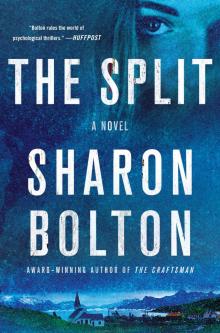 The Split
The Split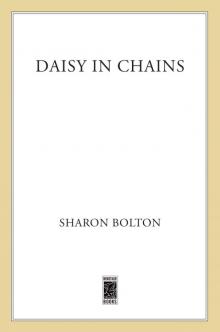 Daisy in Chains
Daisy in Chains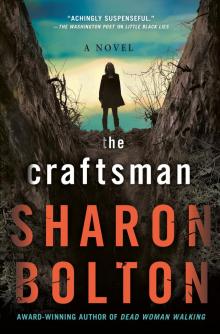 The Craftsman
The Craftsman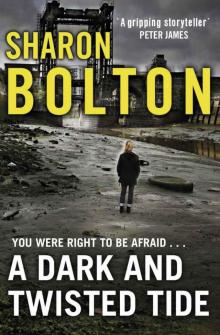 A Dark and Twisted Tide
A Dark and Twisted Tide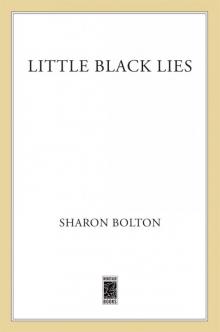 Little Black Lies
Little Black Lies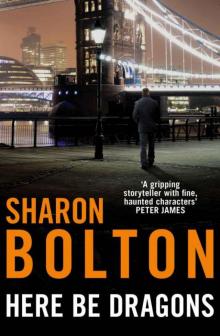 Here Be Dragons: A Short Story
Here Be Dragons: A Short Story Alive
Alive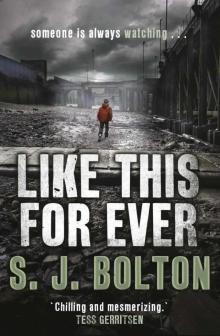 Like This, for Ever
Like This, for Ever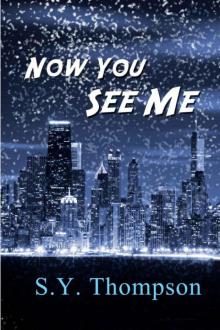 Now You See Me
Now You See Me Sacrifice
Sacrifice